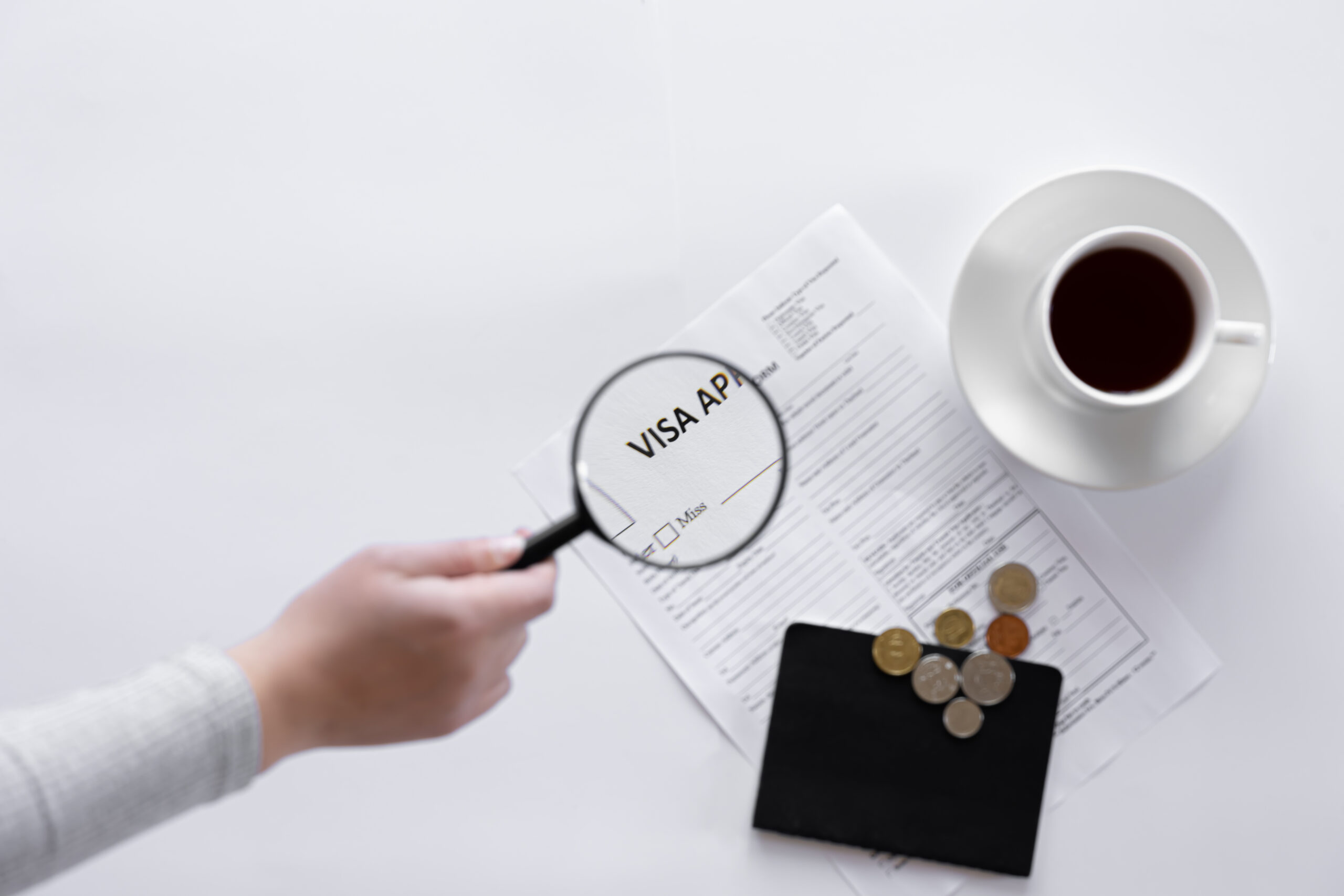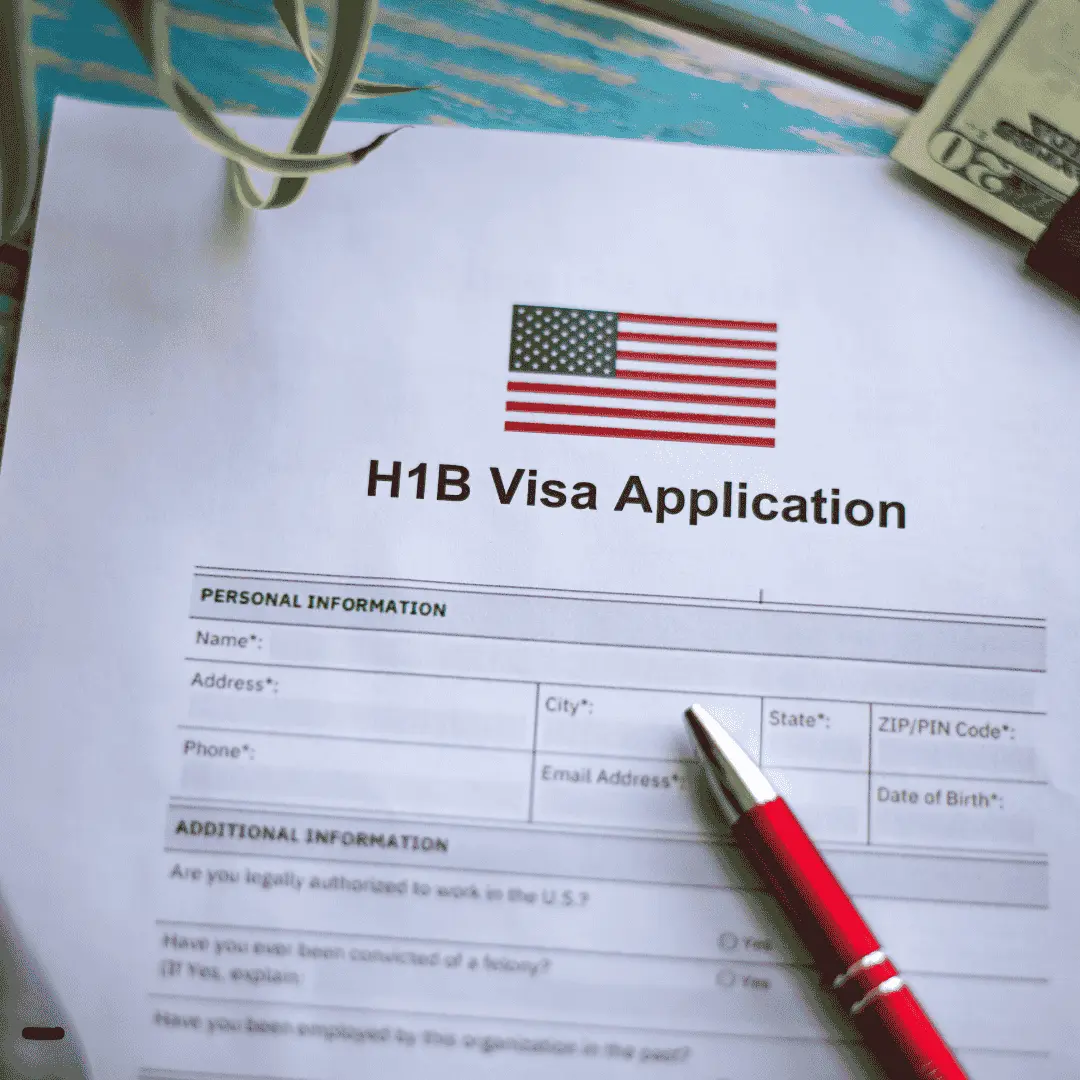An F1 visa is one of the most important processes for overseas students aiming to study in the United States. One of the most important parts when applying for this visa is the interview, as it will determine whether you will get admission to a foreign country for educational purposes. Although it may look very intimidating, with good preparation, your chances of passing this interview can be increased. This article will discuss ways and practices that are to be adopted in order to pass the F1 visa interview with ease.
Understanding the Purpose of the F1 Visa Interview
The F1 interview’s primary objective is threefold and is to be achieved by applicants who successfully seek entry into the USA;
- Your genuine intent to study in the U.S.
- Your financial stability to cover tuition and living expenses.
- Your intention to return to your home country after completing your education.
To successfully clear the interview, you should show your qualifications, their sustenance, and your commitments to your home country.
Pre-Interview Preparation
You should manage your responsibilities efficiently so as not to get nervous or falter in front of the interviewers. Here is the first step to help you get there:
1) Gather Necessary Documents
The following documents must be collated in advance:
- Passport: Ensure it is valid for at least six months beyond your intended stay.
- Form DS-160 Confirmation Page: This is the non-immigrant visa application form, which you must complete on the Internet before the interview.
- I-20 Form: Issued by the U.S. school where you have been accepted, this form is evidence of your eligibility for an F1 visa.
- SEVIS Fee Receipt: This receipt proves that you have paid the SEVIS I-901 fee.
- Financial Documents: These should demonstrate that you have the funds to support your education and living expenses (bank statements, scholarship letters, sponsor letters, etc.).
- Acceptance Letter: A formal acceptance letter from your U.S. institution.
- Academic Transcripts & Test Scores: These include your academic records, such as high school transcripts, and scores from standardized tests like TOEFL, IELTS, SAT, or GRE.
2) Practice Common Interview Questions
To be successful in an interview, it helps to anticipate and be ready to respond to some of the common interview questions, for example:
- Why do you want to study in the U.S.?
- Why did you choose this specific university or program?
- How will you fund your education and living expenses in the U.S.?
- What are your plans after completing your degree?
- Do you have any family members currently in the U.S.?
Discuss these issues without unnecessary embellishments, and do not forget to mention your intention to study and go back home after graduation.
3) Know Your Program and Institution
You should know quite a lot about the program and university that you are intending to enroll in. Be prepared to discuss:
- Why did you choose this specific program?
- What courses or professors attract you to this institution?
- How the program aligns with your career goals.
Also, research the university’s facilities and resources, as well as its special features, to demonstrate to the interviewer that you prepared for the interview.
4) Demonstrate Financial Stability
During the F1 visa interview for the US, documents that testify to your financial status are one of the areas that the interviewers would be analyzing. This is because there are many illegal immigrants in the US. Leave appropriate documentation such as bank statements detailing savings or scholarship details as well as sponsorship letters as proof.
Be sure you have the requisite financial documents that would cover tuition costs, accommodation, as well as day-to-day expenditures for the whole period in the host country.
5) Stay Calm and Composed
We all know how irritating it is to wait for the interviewer, especially when sitting in the hot seat of an F1 visa interview, but there is something here you need to remember. Make sure you take deep breaths before answering each question, and be sure to:
- Maintain eye contact with the interviewer.
- Speak clearly and confidently.
- Avoid providing overly lengthy or irrelevant answers.
Be open and honest. Keep in mind that you won’t see everyone in the same light. If you are asked a tricky question, do not try to fake it.
Tips for the Interview Day
Smile and be graceful, and above all, be confident, as the interviewers or adjudicators have had all sorts of people coming to interview them looking for a visa; below is how a perfect interview would play out for an applicant:
1) Dress Professionally
Your appearance reflects your seriousness about the process. Dress in formal attire to present yourself as someone ready to take on the challenges of studying abroad.
2) Arrive Early
Punctuality is important. Plan to arrive at least 30 minutes before your scheduled appointment. This will allow you time to settle your nerves and handle any last-minute paperwork checks.
3) Answer Concisely
Your answers should be short and to the point. Don’t ramble. Provide just enough information to answer the question fully, but avoid irrelevant details. Remember, interviewers deal with many applicants and prefer brief and clear answers.
4) Stay Positive and Honest
Avoid any negativity or dishonesty during your interview. Answer truthfully, even if you are unsure about certain aspects of your future. Maintain a positive attitude, demonstrating enthusiasm for studying in the U.S. and returning to your home country afterward.
5) Focus on Your Academic Goals
Show the interviewer that your primary goal is education, not working or immigrating permanently. Reiterate how the U.S. education system, the chosen program, and the specific institution will help you achieve your academic and professional goals.
6) Prepare for Unforeseen Questions
Sometimes, interviewers may ask unexpected or challenging questions to assess how you handle pressure. If faced with such a question, stay calm, take a moment to collect your thoughts, and answer as best as you can. It’s perfectly acceptable to ask the interviewer to clarify any question you don’t understand.
Post-Interview Follow-Up
There are instances where you will be informed of the decision in the interview itself, that is, whether your visa is granted or not. Unfortunately, in some cases, the decision is, however, postponed due to manual review. No matter the outcome you receive, stay polite and stay professional. In case your visa has been refused, the officer will let you know the reasons for this and what you may do next.
Here are People Also Ask (PAA) :
- What documents should I bring to my F1 visa interview?
Ensure you have the following documents:
- Valid Passport: Must be valid for at least six months beyond your intended stay.
- Form DS-160 Confirmation Page: Proof of your non-immigrant visa application.
- Form I-20: Issued by your U.S. educational institution.
- SEVIS Fee Receipt: Proof of payment for the Student and Exchange Visitor Information System fee.
- Financial Evidence: Bank statements or scholarship letters demonstrating sufficient funds.
- Academic Transcripts and Test Scores: Evidence of your academic qualifications.
Bringing these documents will help demonstrate your preparedness and genuine intent to study in the U.S.
- How should I dress for my F1 visa interview?
Dress professionally to make a positive impression. Opt for formal attire, such as a suit or a conservative dress, to reflect your seriousness about studying in the U.S.
- What types of questions can I expect during the interview?
You may be asked about:
- Study Plans: Why you chose the U.S. and your specific program.
- University Choice: Reasons for selecting your particular institution.
- Academic Background: Your previous studies and qualifications.
- Financial Status: How you plan to fund your education and living expenses.
- Post-Graduation Plans: Your intentions after completing your degree.
Preparing clear and honest answers to these questions will demonstrate your readiness and commitment.
- How can I demonstrate strong ties to my home country?
Emphasize your intentions to return home after your studies by discussing:
- Family Connections: Close family relationships in your home country.
- Employment Opportunities: Job prospects or business plans you have upon returning.
- Property or Investments: Any assets that bind you to your home country.
Clearly articulating these ties can strengthen your application.
- What are some tips to succeed in the F1 visa interview?
- Be Honest: Provide truthful and concise answers.
- Practice English: Conduct the interview in English to demonstrate language proficiency.
- Stay Calm and Confident: Maintain eye contact and answer questions confidently.
- Know Your Program: Be prepared to discuss your chosen course and its relevance to your career goals.
Following these tips can enhance your chances of a successful interview.
For more detailed guidance on preparing for your F1 visa interview, visit University Hub.
Conclusion:
An F1 visa interview requires the applicant to not only have solid documentation but also the right attitude and be well-rested. University Hub works hard to make sure that the well-being of students’ interests is always protected and put first. From choosing a career path and institution that you would want to study in to even assisting with the visa processes, we as an education consultant guarantee that we will provide you with the relevant tools and help to ensure that your academic aspirations are met. Contact us to find out how we can help you with education in the United States and secure the future you deserve.
You will begin on the right foot for an F1 visa interview and the beginning of a thrilling educational journey in America if you observe all the recommendations mentioned in this guide.




